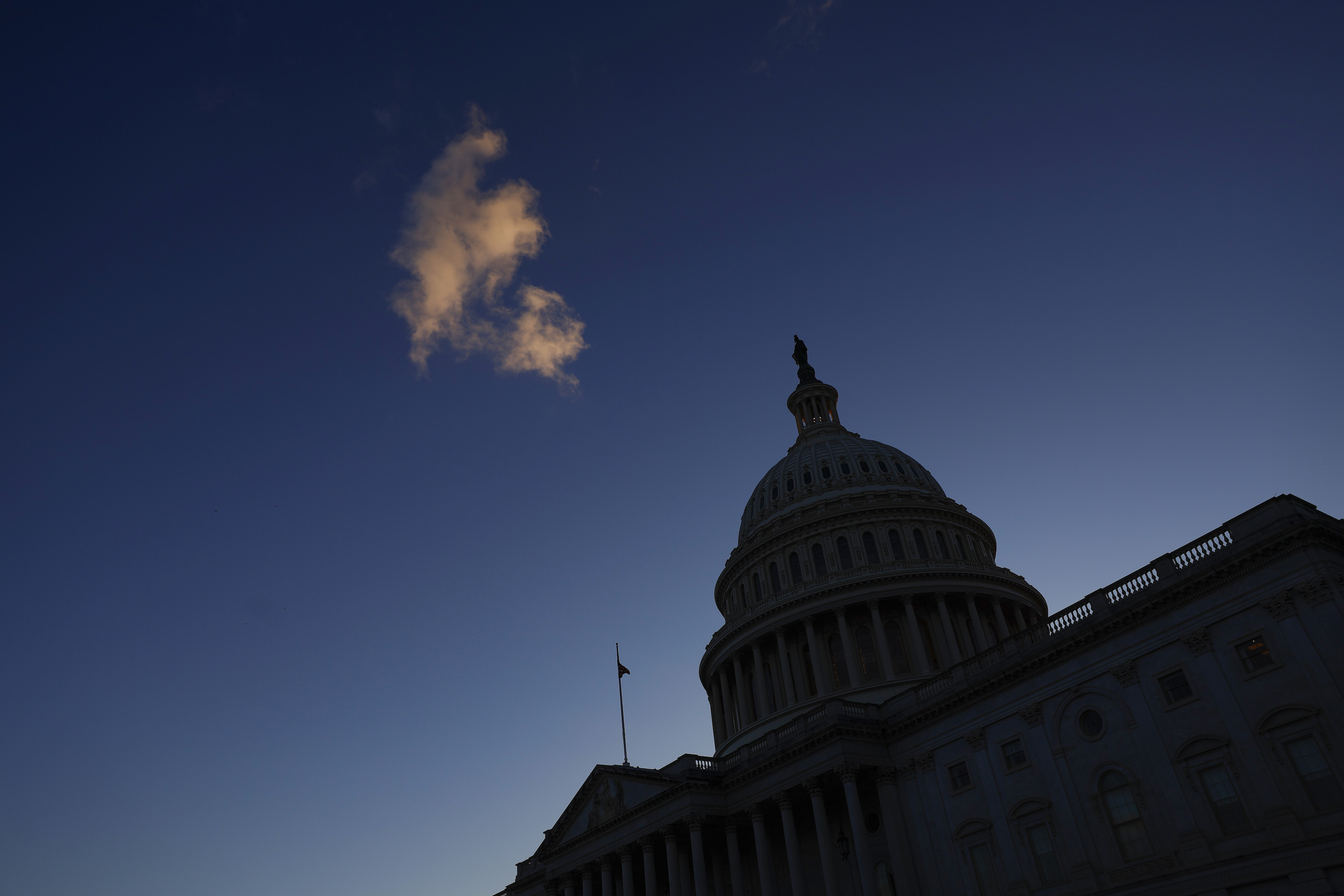The past few weeks in American politics have been busy, to say the least.
Yemen’s Houthi rebels, as part of their efforts to support Hamas in Gaza, have brought commerce in the Red Sea to a near halt—despite the U.S. Navy’s presence in the area. On the home front, the Biden administration and congressional Republicans have been working on a deal that would open up the floodgates for additional Ukraine funding in exchange for dramatic improvements to border security. There have also been key developments regarding the 2024 election, higher education, and the fight against resurgent antisemitism.
You’d think conservatives, as part of a political movement ostensibly built on prudence and moderation, would have answers or at least ideas to mitigate these persistent problems.
But you’d be disappointed.
A look under conservative media’s hood over the past several days reveals moral panic about a statue of Baphomet in the Iowa State Capitol, a Democratic staffer’s sex tape in a Senate meeting room, and widespread anger and resentment at the White House’s admittedly puzzling Christmas video as the leading headlines.
This is not to say that conservatives, being traditionalists, should not have an interest in opposing the profane or the debaucherous. But when a political movement spends more time being angry about a plastic statue or a random staffer’s poor choices than they do addressing the nation’s key policy concerns, that political movement has a serious problem. If the conservative movement aims to govern, it must redevelop concrete ideas for doing so.
After all, a movement whose primary intellectual export is online rage is unlikely to fare particularly well at the ballot box. When voters go to the polls, they typically respond to issues they are intimately familiar with, like their neighborhood’s crime level, the material their children are learning in school, or perhaps most famously, the amount of money in their wallet. In other words, most voters probably have not even seen the Biden Christmas video, much less care about it, but they are deeply concerned about their community’s housing prices.
Anna Moneymaker/Getty Images
When conservatives prioritize vain stories they see on the “trending” page of X (formerly known as Twitter), they lose the very people they need to convince of the movement’s merits. The electoral effects of such misplaced priorities are already evident. Just last month, conservatives lost numerous school board elections they arguably should have won because their campaign strategy was more appropriate for social media than for middle America’s moms. If this continues into next year, the 2024 election will be a disaster.
Even if we assume, for the sake of argument, that conservatives win a whole bunch of elections next year, the public policy landscape is unlikely to look any better. Republicans already have control of the House, but the majority has spent as much time fighting over who should be speaker as it has crafting laws. Conservative presidential candidates like Ron DeSantis feel the need to opine about the Baphomet statue, but are terrified to attack their rivals on matters of public policy. Apparently, substantive policy debates are scarier than the Devil himself.
Why would this be any different if conservatives were to secure control of all three branches of government in 2024? If anything, a victory—which would almost certainly be a negative vote against the Democratic Party rather than an affirmative vote for conservatism—would reinforce all the wrong incentives. Prominent conservatives would double down on being reactionary, and the big stories and trends would continue to reflect clickbait rather than policy. The tone would still be set by figures like Matt Gaetz and Marjorie Taylor Greene.
Meanwhile, domestic and international crises continue to fester.
One can argue that the internet’s role in public affairs will only continue to grow, and that conservatives are consciously exchanging short-term political losses for long-term gains. That’s a fair argument. But when the internet does emerge in the driver’s seat of American politics, voters are still going to make decisions based on their interests. Put simply, a pithy comment or well-made Instagram reel about gas prices will go a lot further than a viral tweet about an allegedly woke Christmas video.
Conservatives have forgotten that the internet, even if it does have some influence, is not real life, and that political movements are meant to govern—not listlessly complain. If conservatives genuinely want the American people to put them in power, they are going to have to do more than react to the viral tweet of the day. They will have to prioritize the American people’s needs and interests, and stick with the platform that put them in charge in the first place.
Garion Frankel is a Ph.D. student in PK-12 educational leadership at Texas A&M University. He is a Young Voices contributor, and previously worked in Republican politics.
The views expressed in this article are the writer’s own.
Uncommon Knowledge
Newsweek is committed to challenging conventional wisdom and finding connections in the search for common ground.
Newsweek is committed to challenging conventional wisdom and finding connections in the search for common ground.

Tyler Fields is your internet guru, delving into the latest trends, developments, and issues shaping the online world. With a focus on internet culture, cybersecurity, and emerging technologies, Tyler keeps readers informed about the dynamic landscape of the internet and its impact on our digital lives.


